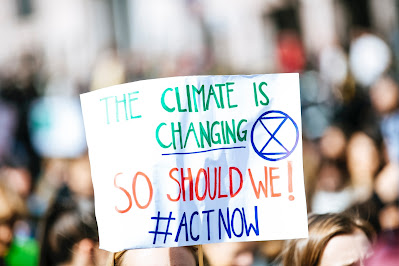Statement of Commitment on Climate Change
The Third Degree
acknowledges the scientific consensus regarding the existence of climate change
and the substantial contribution the human population is now making to this via
our greenhouse gas emissions.
Climate change is one of the biggest global health threats of the twenty-first
century. Current international carbon reduction commitments are nowhere near
enough to avoid this threat. Despite the urgent need for steep reductions in
greenhouse gas emissions to avoid dangerous climate change, the level of global
emissions continues to increase. The threat to future generations grows larger
with every passing year.
The current generation of adults has a responsibility to do
everything we possibly can to protect the children of today and tomorrow from
dangerous climate change. Hence it is of utmost importance that climate change
is included as an urgent priority area for advocacy, research, policy and
practice.
Key commitments:
- Show leadership in our workplaces and in our communities by advocating climate action consistent with the science.
- Reduce our carbon footprint (e.g., by reducing energy use and increasing energy efficiency, switching to renewable energy, reducing waste, etc).
- Measure our performance against defined targets and seek to constantly reduce our environmental footprint.
- Incorporate considerations regarding climate change into our decision making processes; when making decisions, to do so in way that recognises whether we are increasing or decreasing our greenhouse gas emissions.
- Work to increase awareness of the threat that climate change poses to the health and wellbeing of current and future generations and create opportunities for behaviour change to reduce this threat.
- Strive to ensure that our financial investments are not contributing to the threat by divesting ourselves and our organisation of investments in carbon intensive and environmentally destructive activities and industries.
- Conduct and/or advocate high quality research into the current and future effects of climate change on health and wellbeing.
- Take the findings of existing research and translate these into policy and practice that will more adequately protect future generations from dangerous climate change and to advocate for their implementation.

Comments
Post a Comment